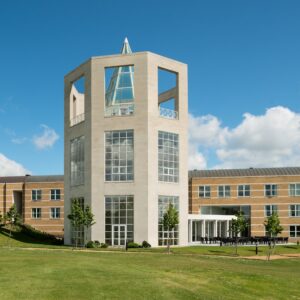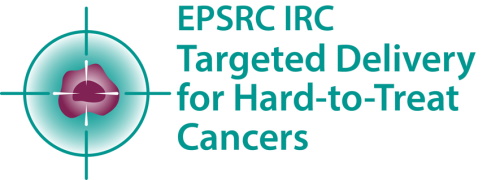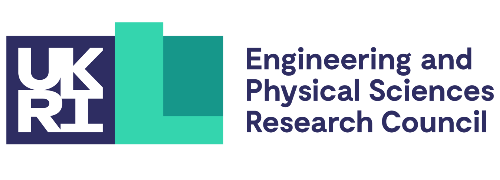Submitted by Claire McGlynn on Wed, 08/11/2023 - 15:15
Thirty members of the IRC, including postdoctoral researchers, academics and clinicians, came together in Cambridge on 21 September 2023 to share progress and map out milestones for the remaining 12 months of this ambitious programme.
Opening the meeting, Professor George Malliaras, IRC Director, spoke of his pride in what the IRC has achieved over the past five years and his hopes for the programme’s remaining 12 months.
“I am immensely proud of the advances made by the IRC. Together, we have pushed the boundaries of science and technology. We have equipped a new generation of researchers with experience of working in multi-disciplinary, multi-centre teams. What we have learned is important in improving outcomes for people living with – and dying from – hard-to-treat cancers,” he told the meeting.
With one year of the programme remaining, he challenged IRC members to capture everything they had learned over the past five years – from publishable results to ‘soft’ knowledge – to ensure the programme maximises its legacy.
“With one year to go, it’s important to redouble our efforts on the sustainability plans that will enable our three technologies to find their individual paths to the clinic,” he told attendees. “It’s also time to make the best use of the data we have, and to capture the other knowledge we’ve gained, such as regulatory pathways. And it’s a key time for writing proposals, building on the IRC’s teams, connections and synergies.”
The meeting heard from IRC postdocs from Liverpool, Strathclyde, Glasgow, Birmingham, Imperial College London and Cambridge, who reported their results on novel drug delivery technologies – injectable hydrogels, high-capacity vehicles (metal-organic frameworks or MOFs), and implantable devices, and the cross-cutting themes of manufacturing and pre-clinical validation.
The meeting also heard from two invited speakers, Hugh Adams, Head of Stakeholder Relations at Brain Tumour Research and Dr Bristi Basu, Co-Lead at CRUK Cambridge Centre Pancreatic Cancer Programme.
Brain Tumour Research (BTR), a campaigning charity as well as one which funds early-stage research, is actively building links between patients, their families and MPs in order to increase pressure on politicians and policy makers.
Adams described BTR’s work with the All Party Parliamentary Group on Brain Tumours, its recent inquiry report Pathway to a cure (to which IRC members contributed), and its use of online petitions in lobbying.
“For us as a charity, it’s about the vision to find a cure for brain tumours. Everything we do drives that forward through the research we fund and the campaigning we do,” he said.
The meeting concluded with an overview of recent developments in the wider field of emerging therapeutics for pancreatic cancer from Dr Basu, providing an insight into ongoing research in this area.



